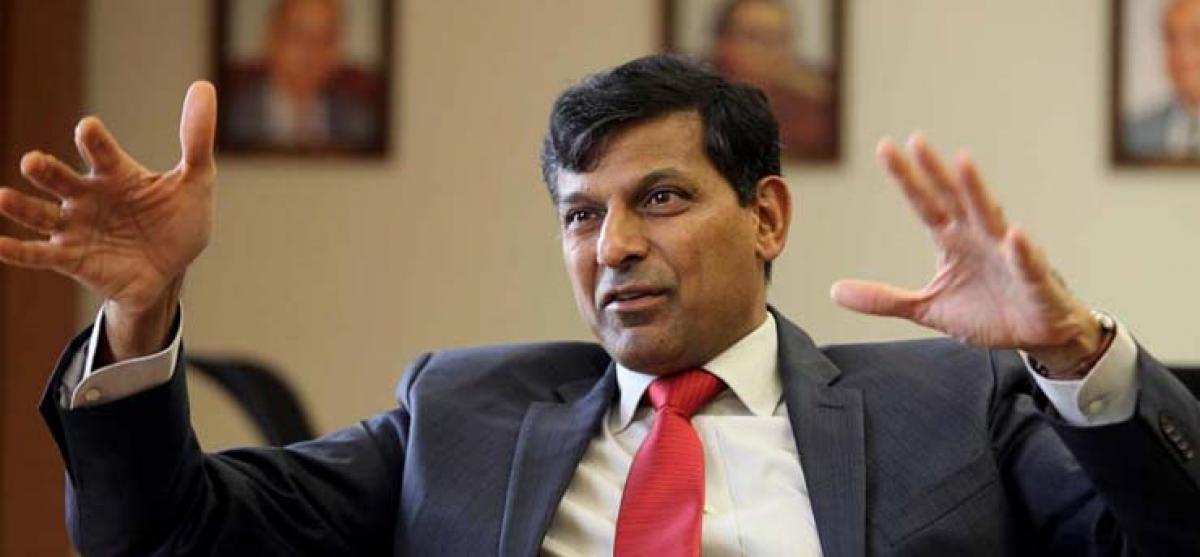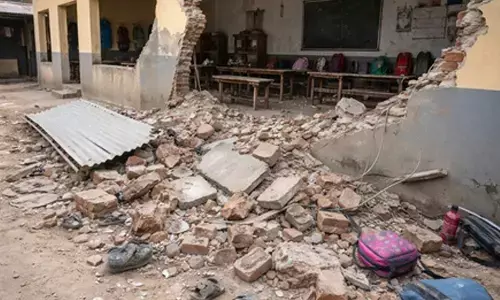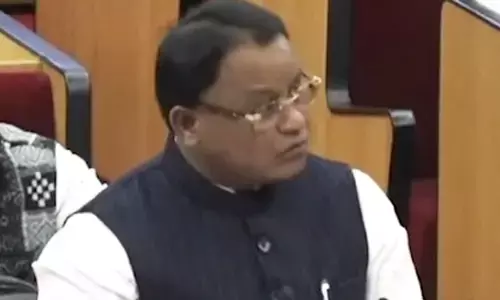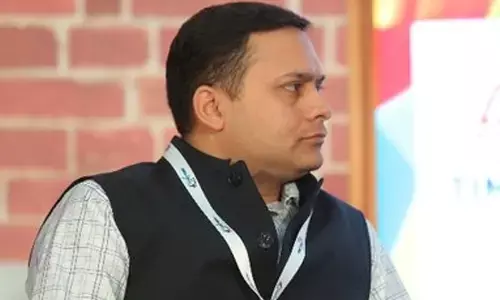RBI making every effort to cut inflation, says Rajan

Reserve Bank of India (RBI) Governor Raghuram Rajan on Monday said the central bank is focusing on bringing down inflation and working with the government and banks on speeding up the resolution of distressed projects.
Reserve Bank of India (RBI) Governor Raghuram Rajan on Monday said the central bank is focusing on bringing down inflation and working with the government and banks on speeding up the resolution of distressed projects.
.jpg)
While addressing the two-day event on the theme 'Inclusive Growth with Disruptive Innovations', jointly organised by the Federation of Indian Chambers of Commerce and Industry (FICCI) and Indian Banks' Association (IBA) with Boston Consulting Group (BCG) as knowledge partners, Rajan said that the short term macroeconomic priorities of the Reserve Bank are to help growth by bringing down inflation in line with the proposed glide path, thus creating room for monetary easing and work with the government and banks on speeding up the resolution of distressed projects and cleaning up bank balance sheets,
"While low inflation for a while will lower the public's inflationary expectations and increase their real disposable income, in order to achieve a sustainable victory against inflation the public has to believe that inflation will stay low even after commodity prices start picking up in the future," said Rajan.
"For the public to look through future price spikes without raising wage demands, the RBI has to have credibility that it will act firmly against any future inflationary threats. Credibility comes from frameworks and institutions. In this regard, the RBI has signed a historic agreement with the government, wherein RBI's mandate is clearly spelled out in terms of an inflation objective over the medium term," he added.
Rajan said that in the coming year, the finance ministry proposes to lay out, after consultation with RBI, the structure of a monetary policy committee that can be formally and legally entrusted with policy decisions. These are welcome steps in building the institutions we need for transparent and independent monetary policy.
"We have discussed the experience with the Joint Lenders' Forum with banks, and we will shortly announce some measures that should improve their functioning. The move by the government to recapitalize banks is welcome, as is the proposal to reward bankers based on progress in cleaning up balance sheets and generating healthy growth. The innovative proposal to create a fund with majority private ownership and minority Government participation to lubricate the process of resolution could be very helpful."
He stressed that the RBI and government are also discussing ways to revitalize Asset Reconstruction Companies so that they can play a greater role in resolving distressed assets.
"The finance minister spoke last week about accelerating the working of debt recovery tribunals through the use of information technology, an idea whose time has certainly come," said Rajan.
"My focus on the challenges in ensuring sustainable growth should not detract from the tremendous progress we have made. There is much to be optimistic about, including the massive investments that are starting in infrastructure, the tremendous sweep of information technology across every facet of Indian life, and the radical changes that are taking place in the financial sector. The Indian economy is full of possibilities, even as much of the world is mired in pessimism. Indeed, I have been arguing that the fragility of the world economy is precisely because it has focused on quick fixes rather than deep reform," he added.
Rajan said that we should not delude ourselves into thinking our work is done, or postpone hard choices to a seemingly easier tomorrow.
"The question for us as a society is whether we have the discipline to do what is necessary at a time when global conditions are propitious - commodity prices look like they will stay low for a time, helping the fight against inflation, and there is plenty of money around the world and at home, looking for investments, including in distressed assets, that can help us clean bank and corporate balance sheets," he said.
"As India strives to regain its place in the ranks of prosperous nations, we must remember that what sets poor nations apart from the rich is not people or resources or even luck but good governance, which comes from strong frameworks and strong institutions. A summary explanation of the economic problems of the recent past is that they arose because India outgrew its institutions. A summary of the Government and the Reserve Bank's measures to restore sustainable growth is that we are building the necessary institutions."
On the occasion the RBI Governor released a Knowledge Paper, titled 'Inclusive Growth with Disruptive Innovations', prepared by BCG.
Next Story








